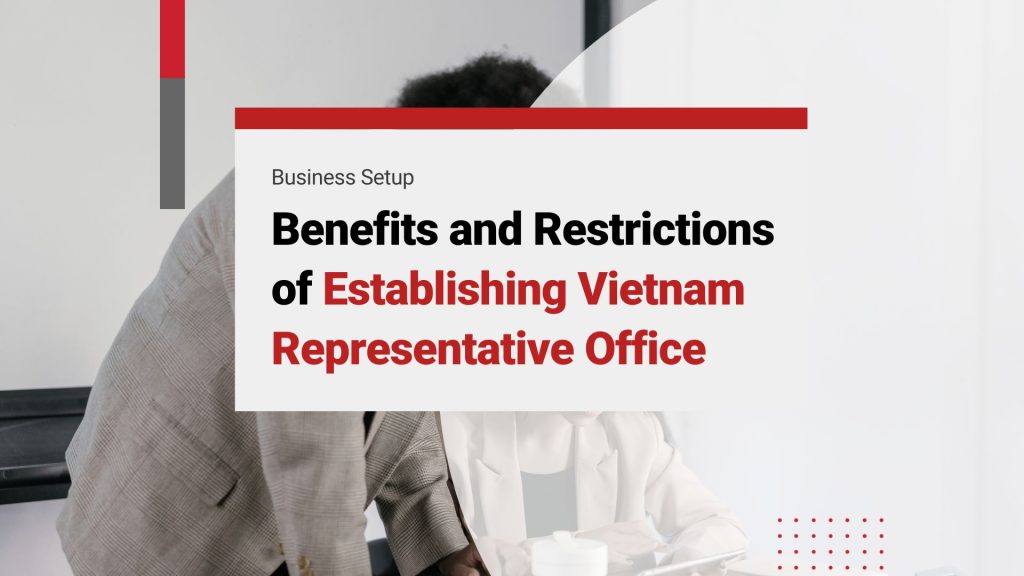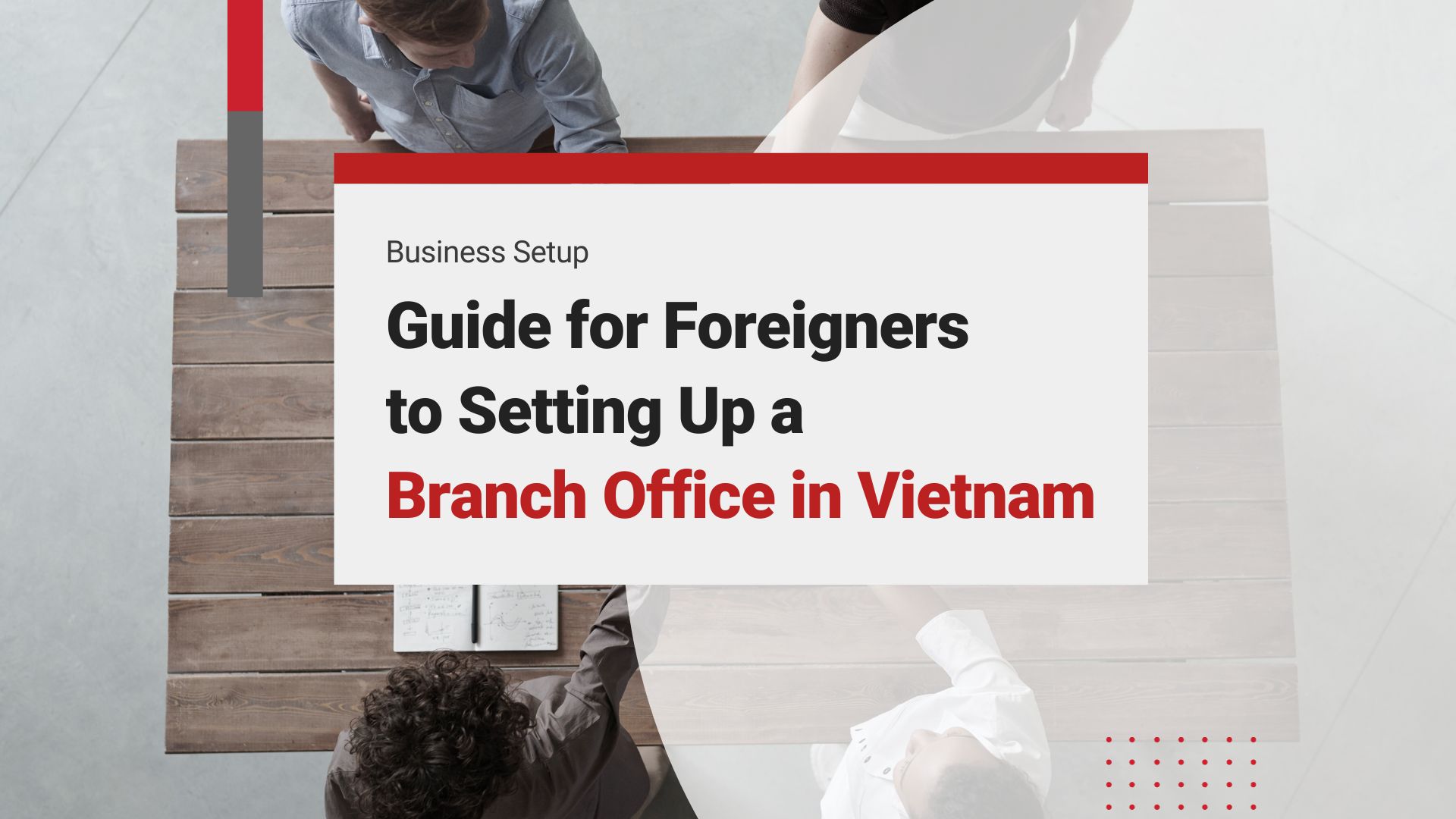When it comes to company registration in Vietnam, a representative office can be a viable option for foreign companies looking to establish their business presence. This office offers an affordable solution, particularly for newcomers who aim to familiarize themselves with the Vietnamese market. It is typically a preliminary step taken by foreign companies before fully entering the Vietnam market or expanding their presence by establishing a complete foreign company.
Establishing a Representative Office in Vietnam? Check out InCorp’s Incorporation Services in Vietnam.
By following the steps outlined in this guide, companies can navigate the requirements and procedures involved in setting up, enabling them to effectively operate and establish their presence in the Vietnamese market.
What is a Representative Office?
It is a commonly chosen foreign investment structure in Vietnam, enabling investors to establish their presence in the local market. It serves as a legal entity through which investors can analyze market trends before considering a limited liability company. However, it is important to note that a representative office has limited functions compared to a foreign-owned limited liability company. The primary distinction lies in that it is prohibited from engaging directly in business activities such as negotiating contracts or conducting transactions with local companies. Revenue-generating activities are not allowed for this office.
Instead, the foreign representative office in Vietnam serves as a dependent unit that supports the business operations of the parent company. It can open a resident office, recruit employees, manage and promote local business contracts, and conduct market research. Representative offices are often utilized by foreign investors in product sourcing, quality control, and facilitating communication between the head office and overseas representative offices.
Compared to branches or subsidiaries, establishing a representative office is generally simpler as they are not involved in actual business transactions and therefore face less regulatory scrutiny.
Setting Up a Representative Office in Vietnam
Benefits of Setting up in Vietnam
It offers several advantages for foreign investors, contributing to the popularity and success of this investment structure:
- Hiring employees to handle contracts, promote sales activities, and promote partnerships with local companies.
- Conducting research, identifying potential goods and services for purchase, and contributing to product development
- The license granted to a representative office is typically valid for two to five years and can be renewed, providing flexibility for long-term investment activities.
- Work permit and a two-year multiple temporary residency visa for foreign staff.
- Cost efficiency: Representative offices are not subject to corporate income tax, value-added tax, independent audit requirements, or preparation of financial statements.
- If necessary, shutting down a representative office is relatively straightforward compared to other business structures.
Key Restrictions in Vietnam
While establishing a representative office in Vietnam offers benefits, there are also challenges that foreign investors should be aware of:
- The representative office is restricted from engaging in profit-generating activities, including accepting purchase orders from individuals or companies.
- The representative office cannot issue invoices or provide after-sales services for the parent company’s products and services.
- The representative office must strictly adhere to local regulations concerning social insurance, labor, and personal income tax. This includes paying social insurance contributions of up to 34.5% for employees and fulfilling tax obligations such as tax registration, monthly personal income tax declaration, and annual settlement reporting. Personal income tax rates vary depending on residency status and income sources.
- Proper record-keeping and management of business records are essential, as tax authorities may conduct audits or inspections every 3 to 5 years to assess compliance.
- The licensing department requires representative offices to submit annual reports. Furthermore, there is an initial operational term of 5 years with the possibility of extension upon application.
Engaging in these unauthorized activities may result in penalties for foreign companies, as well as taxation in Vietnam on any income received in the country. It is important for representative offices to comply with these restrictions to ensure legal compliance and avoid potential consequences.
Requirements for Foreign Companies
Setting up this kind of office in Vietnam is a common choice for foreign companies, with a significant number of them already operating in cities like Ho Chi Minh City, Hanoi, Binh Duong, and Dong Nai. The process of incorporating a representative office is relatively less complex as its primary purpose is to survey the market and engage in promotional activities.
Read More: Choosing the Ideal Business Location in Vietnam: The First Step of Success
Before foreign investors/ companies can legally establish their representative offices in Vietnam, they must meet certain conditions:
- An international trading company or a foreign business entity is eligible to establish a representative office in Vietnam.
- The parent company must have been in operation for at least 12 months from the date of its establishment.
- The foreign parent company must acquire a seal specifically for the representative office, bearing its name.
- The business registration certificate of the parent company must be valid for at least 12 months from the date of application submission.
- Establishing a representative office will be permitted only for foreign companies with active business activities.
- The foreign company should operate in a sector or market that has genuine demand in Vietnam.
- The scope of operation for the representative office should align with the scope specified in the treaties or agreements between Vietnam and the parent company’s country.
Documents Necessary when Establishing in Vietnam
To establish and register a representative office in Vietnam, the following documents are necessary, for the application process:
- A representative of the foreign company must sign an application form from the Ministry of Industry and Trade (MOIT) to apply for the license of the representative office.
- Copies of the foreign company’s business license or certificate of business registration, certified by the Consulates of Vietnam or the foreign country’s diplomatic missions.
- A certified letter of appointment in Vietnamese from the head of the representative office.
- Copies of financial statements or other financial certificates that demonstrate the fulfillment of tax obligations of the parent company for the previous fiscal year (translated into Vietnamese).
- Copies of the passport or identity card of the head of the representative office (translated into Vietnamese & legalized).
- Certified copies of the memorandum of understanding (MOU), leasing contracts, or relevant documents providing the right of use, for the representative office’s location.
- Certified copies of documents related to the expected location of the representative office.
Process of Establishment
One of the most crucial steps in the process of establishing a representative office in Vietnam is to prepare a dossier of all the above-mentioned documents. After that, you must follow the following steps:
- Fill out the application form, along with the company’s stamp.
- Prepare a power of attorney authorizing someone to submit the application on behalf of the company.
- Gather all the above-mentioned documents in the dossier.
- Submit the dossier of the filled and signed application form and the relevant documents to the MOIT, either via post or online.
- The MOIT will provide feedback within 3 business days of receipt of the application.
- If the dossier is found to be incomplete or incorrect, the MOIT may request additional documents.
- Upon receipt of the complete application, the MOIT will finally approve or decline the application, within 7 working days.
The process of setting up a representative office in Vietnam typically takes between 1.5 to 2 months. To ensure compliance and save time, it is advisable to engage the services of a professional consultant.
There are currently no restrictions on the number of foreign employees that a representative office can hire in Vietnam. However, each foreign worker must obtain a work permit. Working with a recruitment and HR agency can help facilitate the hiring and recruiting process for foreign employees.
In terms of tax obligations, a representative office is only responsible for the personal income tax (PIT) of its employees and is not subject to corporate income tax (CIT) in Vietnam. Tax reports must be submitted by January 30th each year.
Compliance Steps After Licensing
Once you have obtained the representative office license, there are several additional steps to complete the establishment process. Below are the steps and the documents needed for each.
- Create a seal for official documents: the representative office establishment license and the Chief of representative office’s passport (for foreigners) or ID (for Vietnamese).
- Register for a tax code for the representative office: a declaration, power of attorney, representative office certificate in Vietnam, and seal registration certificate.
- Open a bank account for the representative office: the representative office establishment license, seal registration certificate, tax code registration certificate, and an authorization letter appointing the authorized signatories for the account.
- Make an announcement about the establishment of the representative office, in accordance with the regulations of the local licensing agency.
About Us
InCorp Vietnam is a leading provider of global market entry services. We are part of InCorp group, a regional leader in corporate solutions, that encompasses 8 countries in Asia-Pacific, headquartered in Singapore. With over 1,100 legal experts serving over 15,000 Corporate Clients across the region, our expertise speaks for itself. We provide transparent legal consulting, setup, and advice based on local requirements to make your business perfectly fit into the market with healthy growth.
Don’t take our word for it. Read some .
Verified by
Ian Comandao
Business Consulting Manager at InCorp Vietnam
Ian is a sales and marketing professional who has worked over 15 years in key accounts management.






